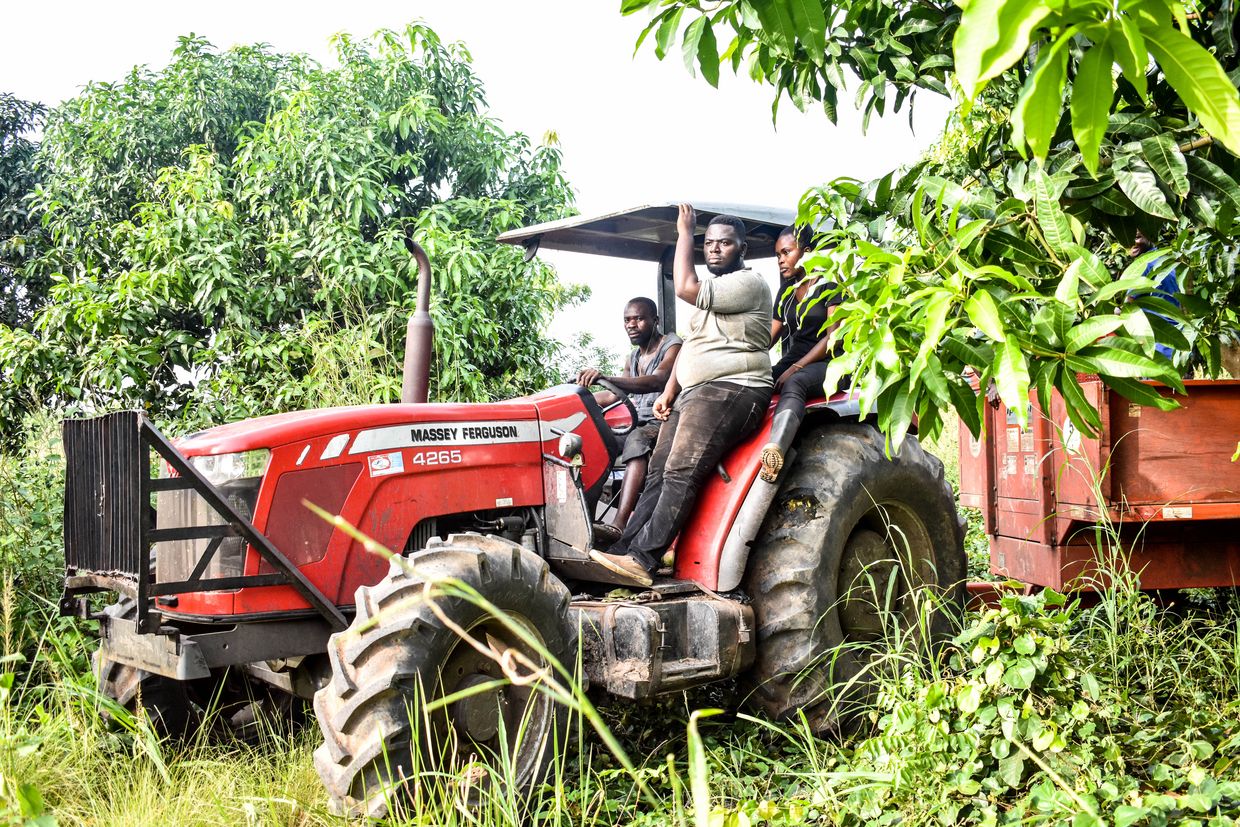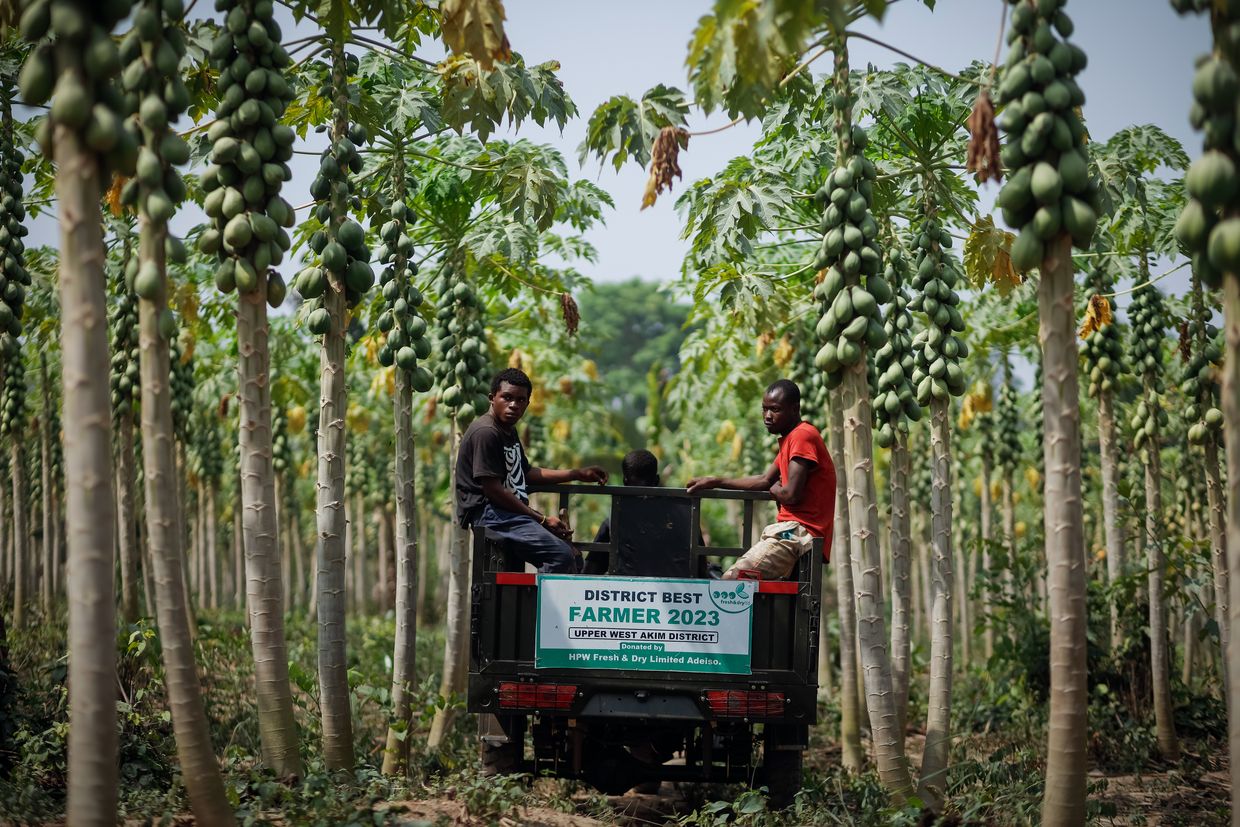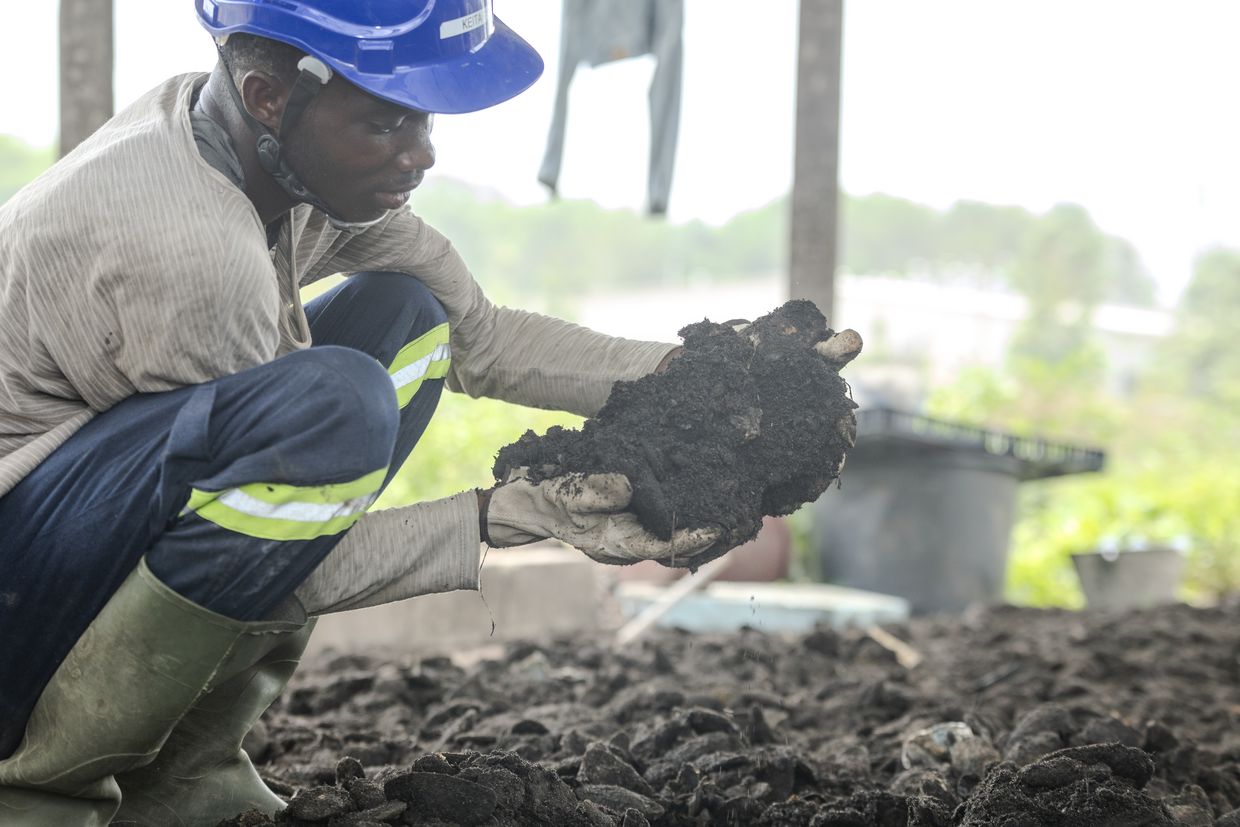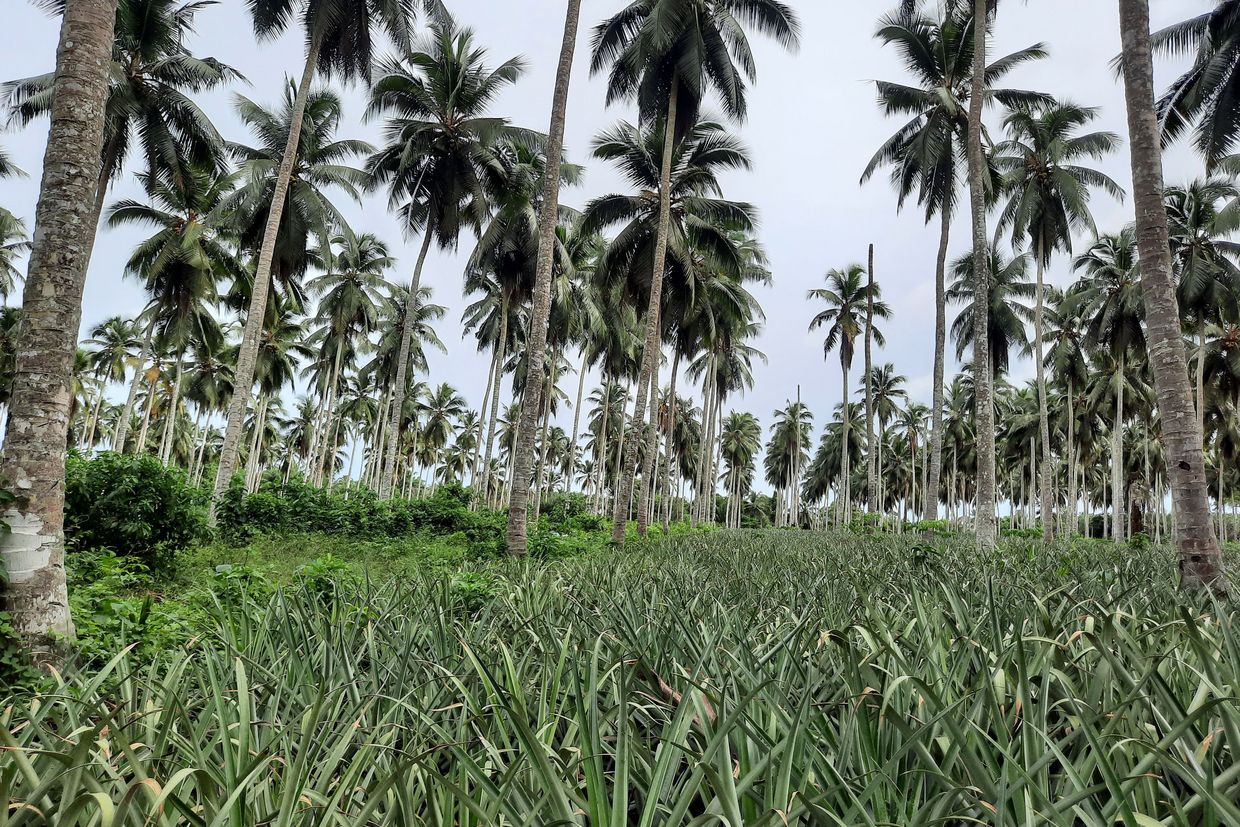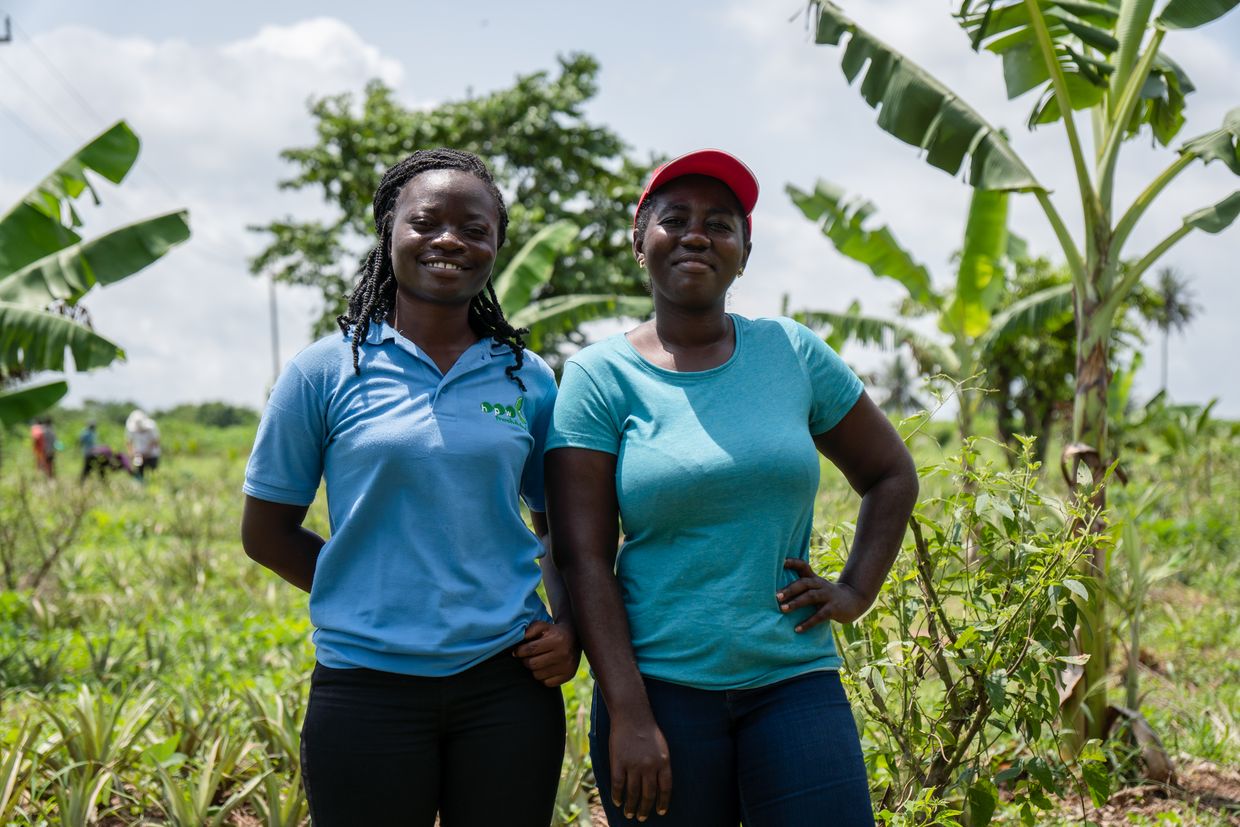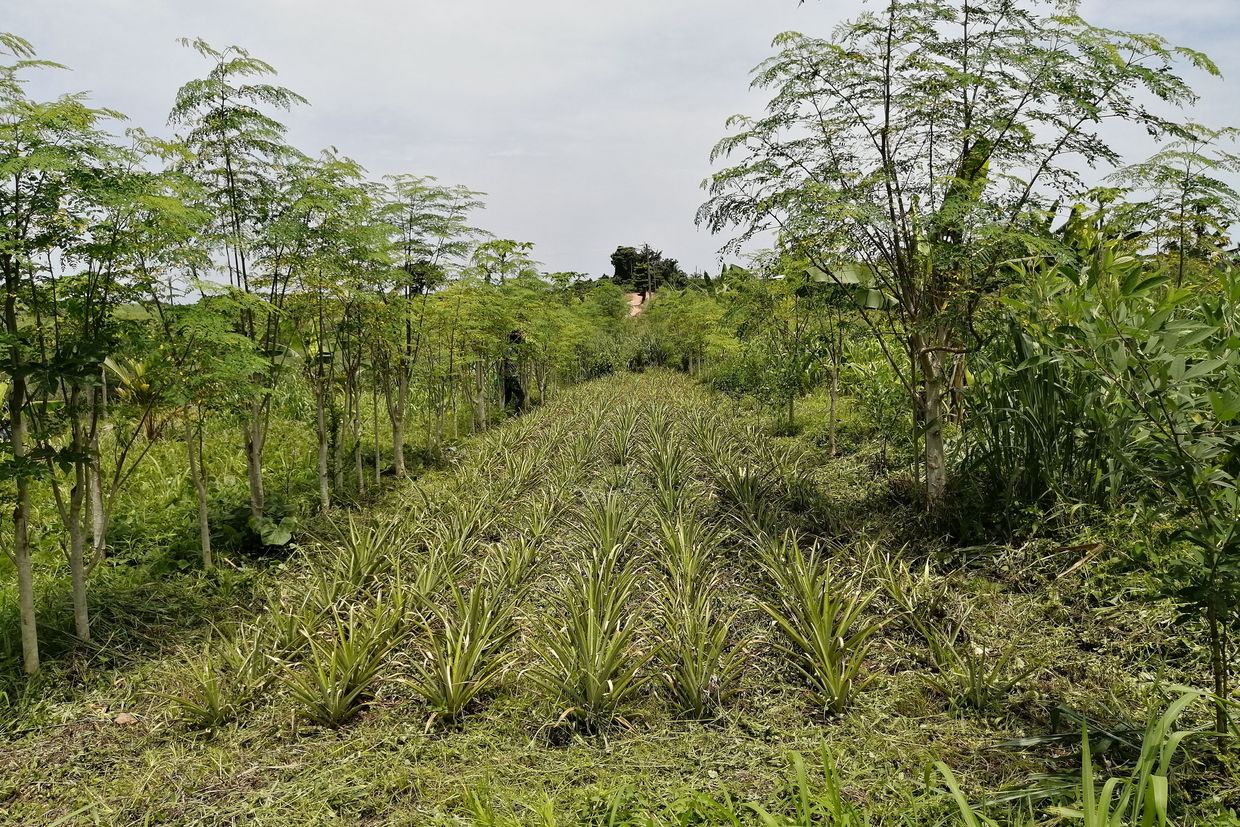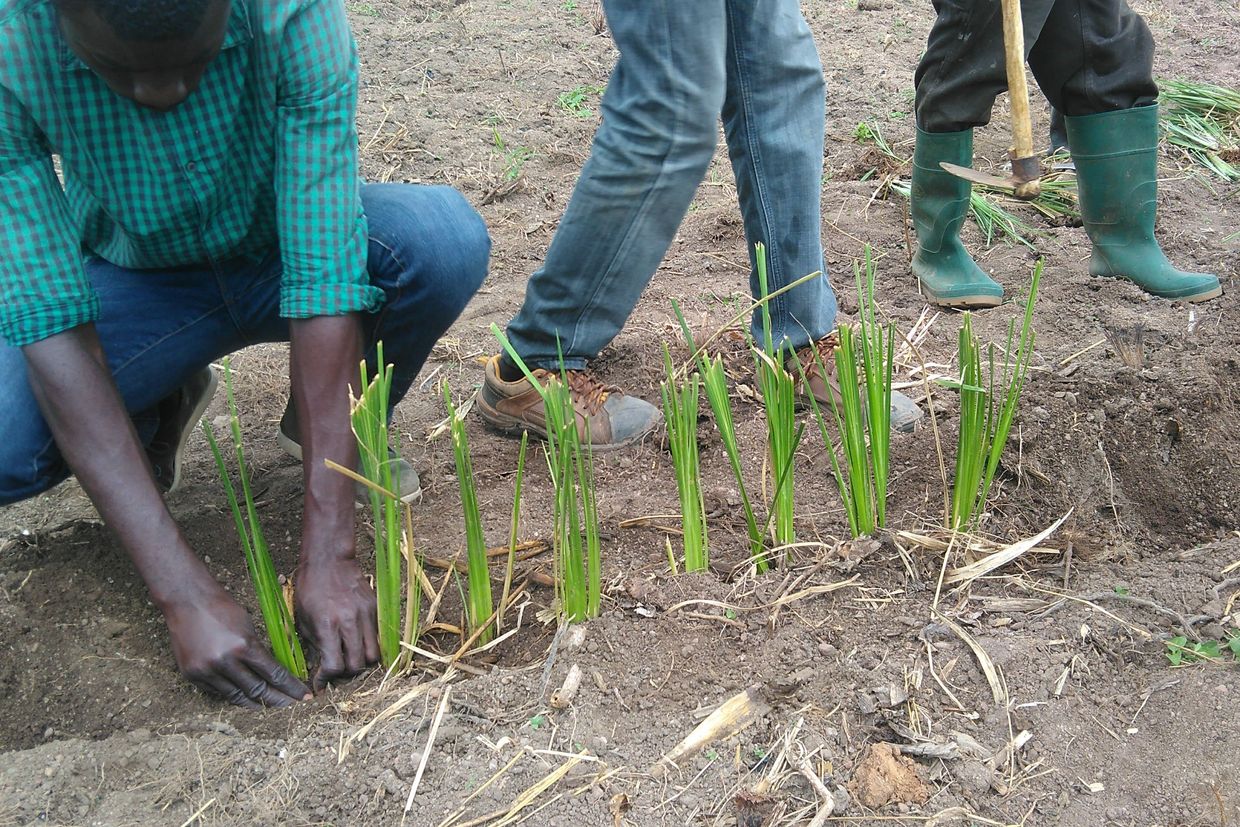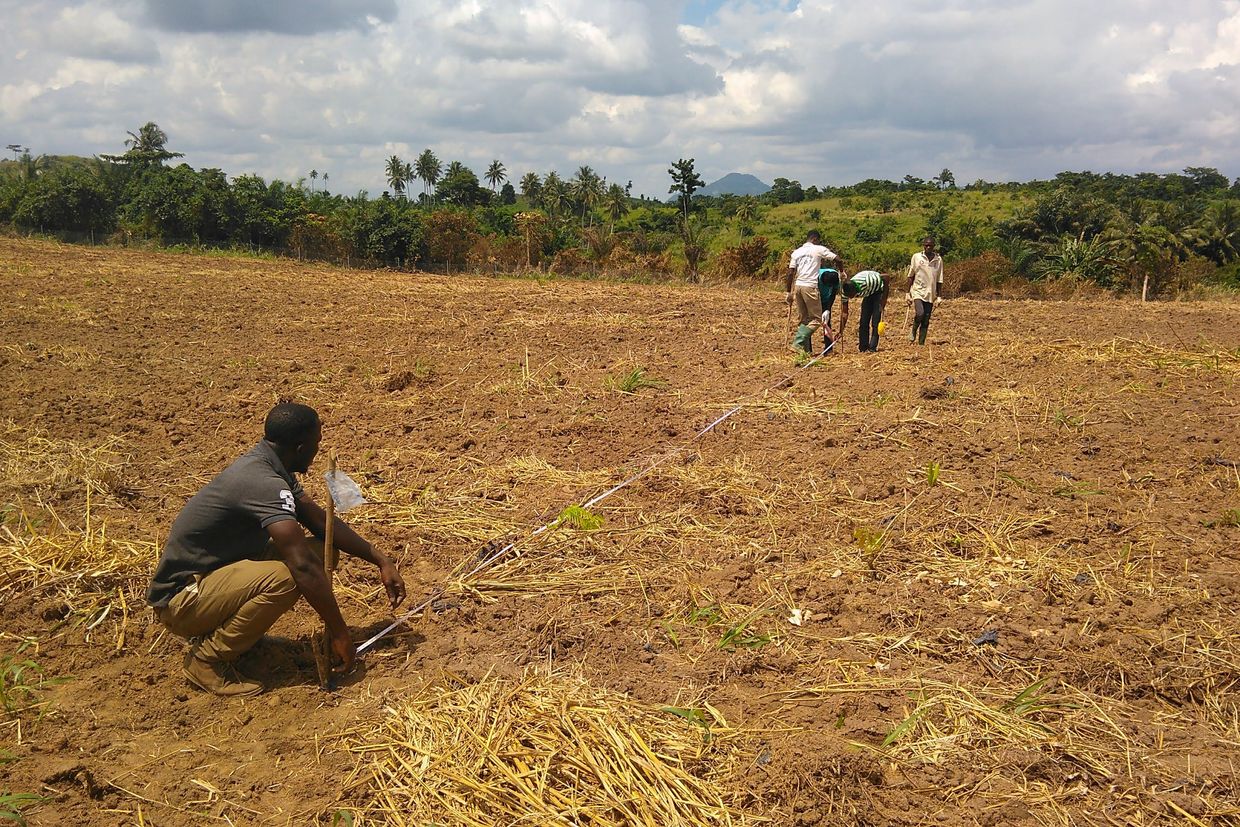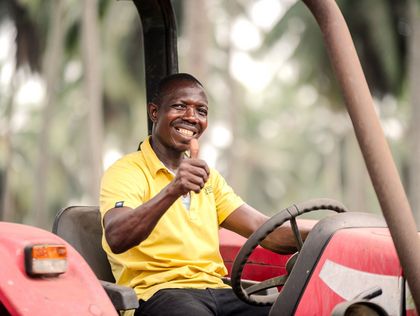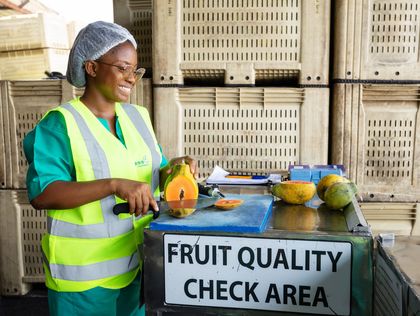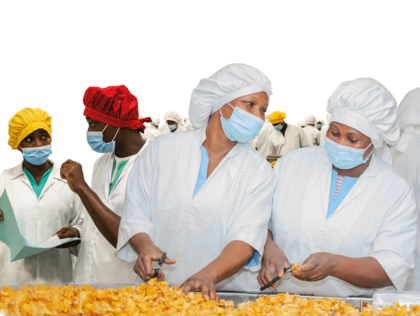
Agroforestry & regenerative agriculture (ROC)
We are leading the way in West Africa
The whole world is talking about agroforestry and regenerative agriculture, but very few are practising it on the African continent. We are changing that, at least in West Africa. HPW also sees itself as a pioneer in this area. Our ROC-certified projects for mangoes, pineapples and coconuts in Ghana and the Ivory Coast are among the first in the region.
Agroforestry and regenerative agriculture have become increasingly important worldwide in recent years. West Africa, with its rich natural diversity and fertile soils, offers an ideal environment for the integration of sustainable practices. The union of agroforestry and regenerative agriculture aims to achieve environmental, economic and social benefits by increasing productivity while protecting the environment.
As processors of mango, pineapple and coconut, it is our responsibility to take care of the land we use for cultivation. A responsibility that we are happy to fulfil.
We work closely with over 1,600 small producers to supply our factories. Quality is often more important than quantity. Only first-class quality results in a first-class dry product. These are the standards we set ourselves.
We offer fruit growers technical support and invest in research and long-term projects.
Regenerative agriculture looks different depending on the country and fruit - what works for mangoes does not necessarily work for coconuts and vice versa. We pursue one goal: sustainable cultivation of the soil that maintains fertility and is economically successful.
Crop rotation with green manure plants - good for fertile soils.
At HPW, we are mainly experimenting with multicropping and crop rotation with green manure plants. For example, we achieve success with pineapples by planting Mukuna beans after harvesting the fruit and plant material. These cover the soil and the biomass of the legumes is ploughed back into the soil, which fixes the nitrogen and promotes fertility.
Mulitcropping - good for the environment and income.
Multicropping is a successful measure of regenerative agriculture, especially for coconuts, and is used in both organic and conventional production. This not only benefits the soil, but also the farmers who cultivate it. Pineapples, manioc, plantains, yams, vegetables and dessert bananas can be grown under the coconut palms. Which means more sales for the small farmers. Our farmers in the Ivory Coast supply us with coconuts and pineapples.
Mango Variety - success through variety.
We have been working on the Mango Varietal Project for over 7 years. The idea behind it: In Ghana, we mainly produce the mango variety "Keitt", which ripens relatively late. By means of a tree nursery in which we promote and propagate different varieties and make them available to our producers, we hope to find the perfect variety that ripens earlier and is in no way inferior to the flavour and sweetness of the 'Keitt' mango.
